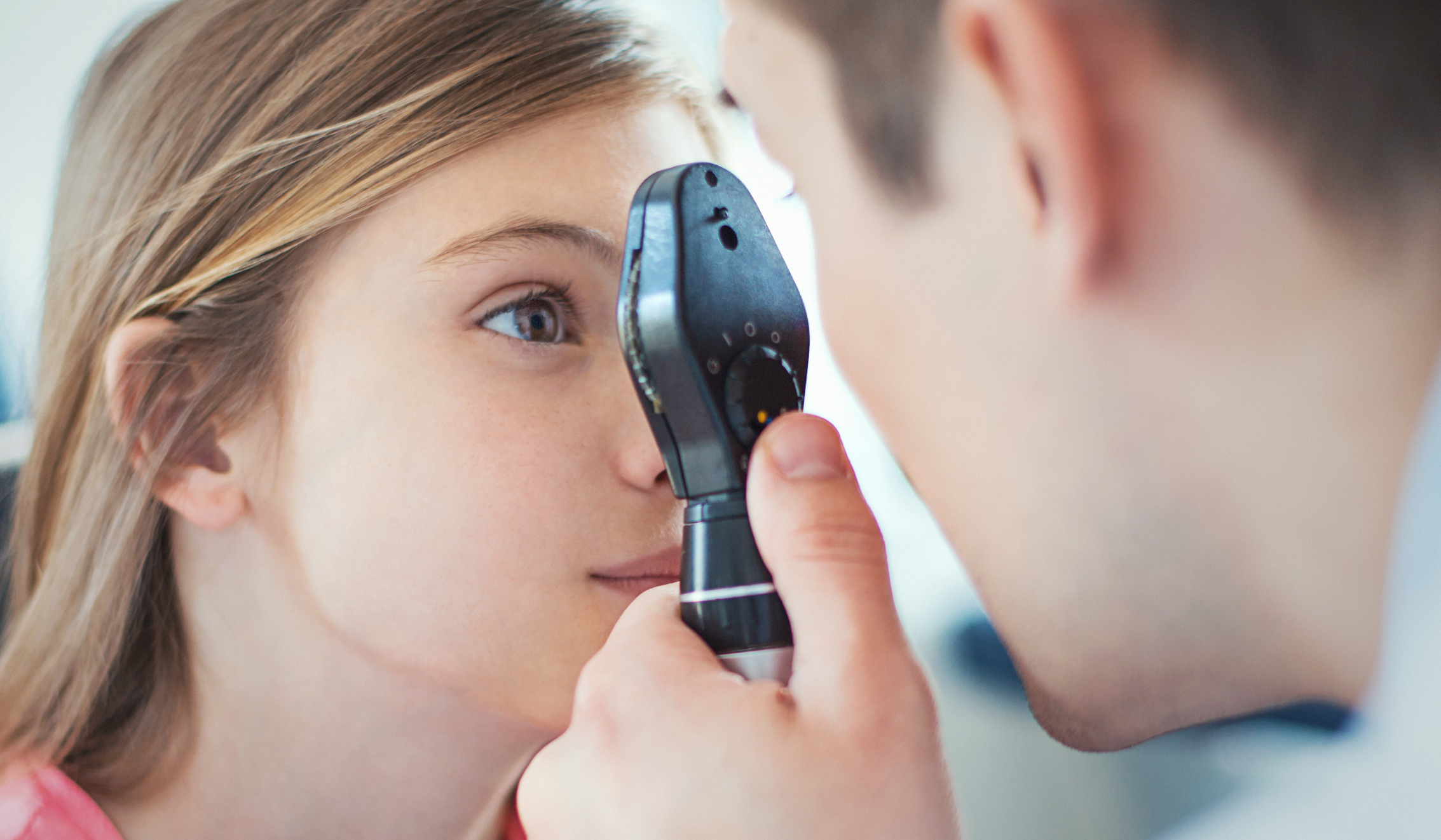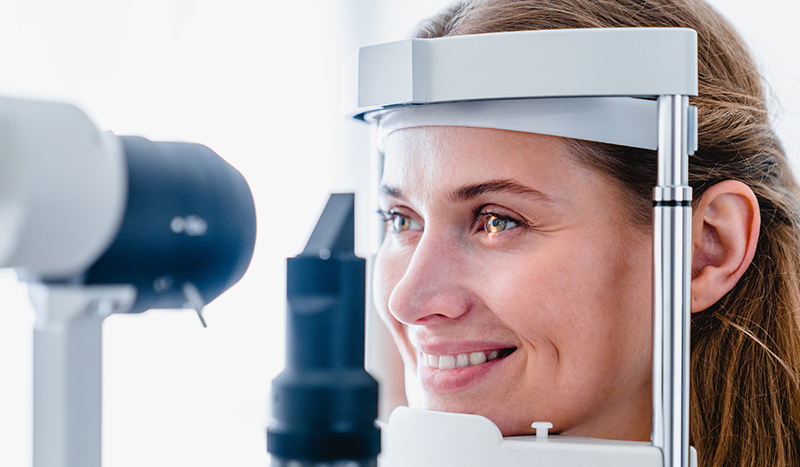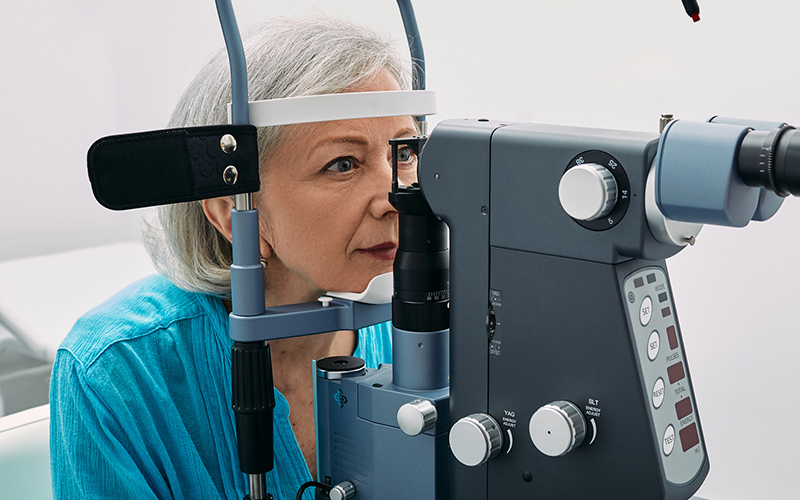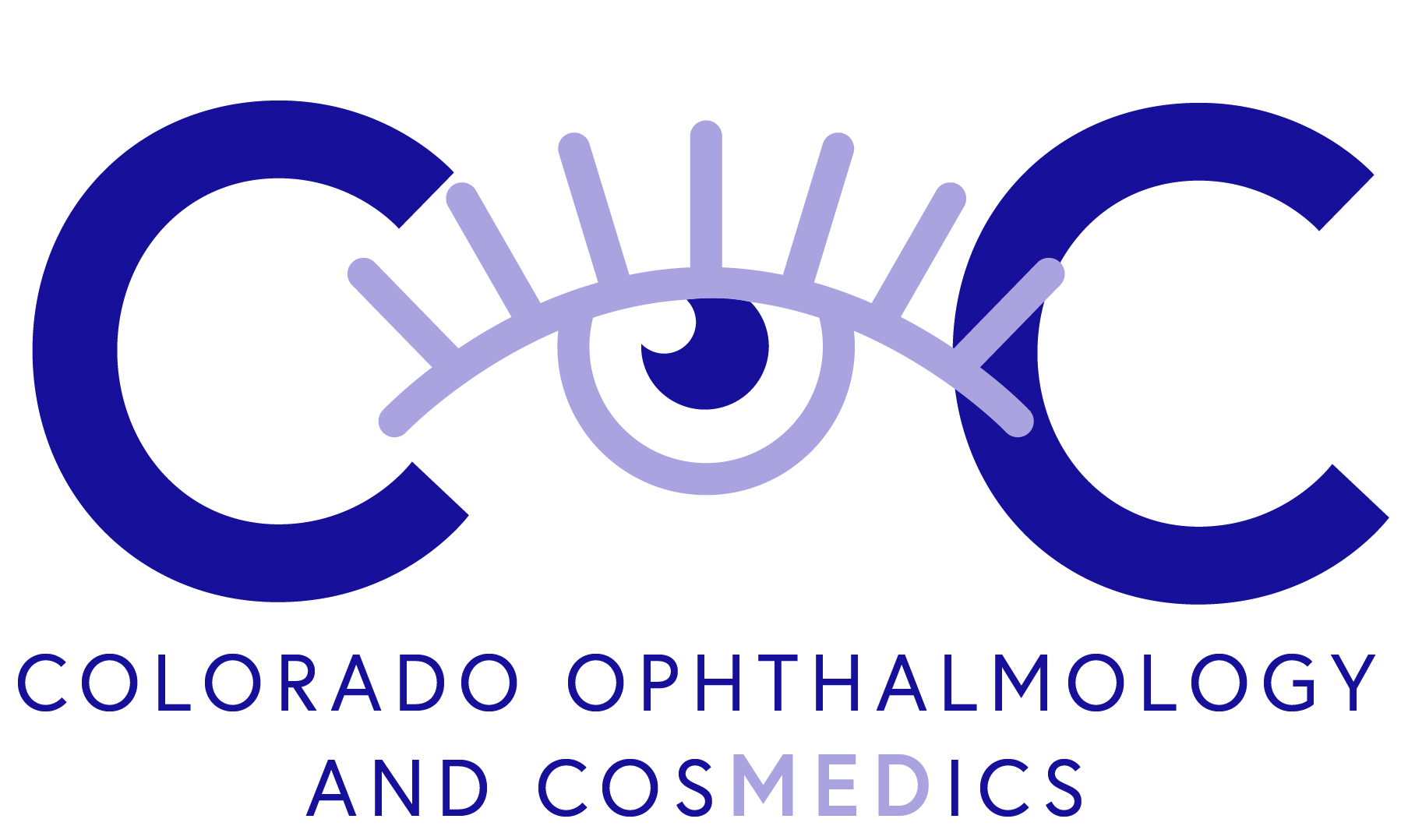Eye Exams in Lone Tree, CO
Taking care of your eyes involves more than just vision checks. Ophthalmology not only includes vision, but many other conditions that affect eye health. At Colorado Ophthalmology and CosMEDics, we offer comprehensive ophthalmology services to the residents of Snowmass Village, Lone Tree, Littleton, Aurora, and surrounding areas of Denver Colorado.
Your eyesight is a precious gift, and we want to help you preserve it for a lifetime. At Colorado Ophthalmology and CosMEDics, we provide comprehensive eye care services to monitor your eyesight and give you the opportunity to be proactive about changes in your vision – even if you don’t realize there is a problem. Early detection of vision problems is often vital to helping preserve your eyesight.
What is an Eye Exam?
An eye exam is a test conducted by an eye doctor, such as our ophthalmologist, Dr. Alan J. Margolis, MD, to evaluate vision and check for any vision problems or eye diseases. It involves a series of tests to examine the overall health of the eyes.
Common Eye Exam Tests
- Current refractive error measurement using retinoscopy
- Eye pressure measurement to identify glaucoma
- Eye health using a slit-lamp
- Visual acuity to measure the definition of your vision
- Blind spot detection using a visual field test
- Eye misalignment using cover tests
- Eye disease identification through pupil dilation
How Often Should You Get an Eye Exam?
The American Optometric Association recommends that most adults get an eye exam every 1-2 years. Those with vision issues, diabetes, family eye disease history may need more frequent exams. Children should have an initial exam around age 3-5 and then every 1-2 years if no issues are found. However, you should schedule an eye exam at your earliest convenience if you are struggling with any of the following symptoms:
- Blurry vision
- Headaches
- Eye strain
- Double vision
- Pressure or pain in the eyes
- Difficulty seeing at night
How Often Do You Need an Eye Exam by Age?
For patients with healthy eyes, the following comprehensive eye exam schedule is recommended:
- First eye exam: age 6 months
- Second eye exam: age 3 years
- School age children: before starting school and then every 1-2 years (in addition to vision screenings at school)
- Adults: every 1-2 years
- Seniors and high risk patients: yearly
What to Expect at an Eye Exam By Age
The eye exam process and the tests involved will vary by patient age, as certain vision problems tend to develop more commonly at some ages than others. Additionally, we will consider the patient’s risk profile and symptoms, if there are any, to determine the appropriate eye exam tests. Here’s what you can expect at your eye exam based on your age group.

Eye Exams for Kids
The main goals of a pediatric eye exam is to detect any vision development issues early, prescribe corrective glasses if required, and facilitate healthy vision skills to set children up for success with learning and academics. Your child may need an eye exam if they are experiencing:
- Headaches
- Squinting
- Sitting too close to objects
- Losing their place while reading
- Eye rubbing or tearing
To diagnose the cause of these symptoms, Dr. Margolis may use a variety of tests. These include a visual acuity test, a retinoscopy to determine any refractive errors, a stereopsis test to examine depth perception, an ocular motility test to examine eye alignment, as well as an examination of the external structures of the eyes to ensure normal anatomy. Using these tests, common diagnoses for this age group include:
- Nearsightedness
- Farsightedness
- Astigmatism
- Amblyopia

Eye Exams for Adults
Regular eye exams are important for maintaining eye health and clear vision well into adulthood. The American Optometric Association recommends adults get an exam every 1-2 years, with more frequent exams needed if experiencing chronic conditions like diabetes. Some signs an adult eye exam may be needed sooner include:
- Blurry vision, especially when doing detail work like reading or using screens
- Frequent headaches or eye strain
- Increased light sensitivity
- Double vision
- Difficulty seeing at night
- Dry eyes or eye discomfort
- Seeing halos around lights
During an adult eye exam, Dr. Margolis will perform visual acuity tests, while also checking for visual processing issues like depth perception, eye alignment, and tracking ability, which can change over time. He may also use an ophthalmoscope to examine the inside of the eye, including the retina and optic nerve, checking for signs of glaucoma, cataracts, macular degeneration or other ocular diseases. Eye drops may be used to dilate the pupils for better internal viewing. With these tests, some of the common diagnoses of this age group include:
- Presbyopia (loss of near focus)
- Astigmatism
- Development of cataracts
- Development of glaucoma
- Development of macular degeneration
Adult eye exams are crucial in enabling the early detection of progressive eye diseases. The goal of these exams is to prevent vision loss and maintain clear, comfortable vision.

Eye Exams for Seniors & High Risk Patients
As we age, regular eye exams become even more critical for preserving sight and catching issues early. Vision loss poses increased safety risks for seniors and early detection improves outcomes for common age-related eye diseases. Those over 65 should receive a comprehensive exam every 1-2 years. High risk patients, including people with diabetes, hypertension, cardiovascular disease or family history of glaucoma or macular degeneration, need exams more frequently.
For this population, Dr. Margolis checks for cataracts, glaucoma, diabetic retinopathy, macular degeneration and other ocular conditions using visual field testing, ophthalmoscopy, tonometry and eye dilation. These diseases often show no obvious symptoms in early stages so routine, dilated exams enable early diagnosis and treatment to slow further progression. In addition to being above the age of 65, you may be considered a high risk patient if you:
- Have diabetes
- Have a family history of glaucoma or other ocular diseases
- Have experienced previous eye trauma or surgery
- Take medications with side effects that impact vision
- Have been diagnosed with vision or eye problems
Eye Exams for Overall Health
Dr. Alan Margolis can also identify underlying health problems just by looking at your eye health. Because the eyes directly reflect bodily processes like sugar metabolism, blood flow, oxygenation, and waste removal, they can provide vital insight into how the whole system functions. What Dr. Margolis sees in your exam goes far beyond vision alone - it can save lives through early detection. In some cases, eye exams can identify medical conditions such as:
- Diabetes
- Stroke risk and heart disease
- Hypertension and vascular conditions
- Autoimmune disorders
- Brain tumors
- Cancer
Don’t wait to schedule an eye exam until you or your loved one is experiencing vision difficulties. Contact us today to schedule an eye exam in Lone Tree.
How Long Does an Eye Exam Take?
A comprehensive eye exam usually takes about one hour. Your initial visit to Colorado Ophthalmology and CosMEDics may take longer than usual, as you may need to complete paperwork. Dr. Margolis will also take extra time during your initial visit to review your medical history and get a full understanding of your eye health. Future visits for routine eye exams are typically completed quicker, especially if you are not currently experiencing any difficulties or changes in vision.
How Much Does an Eye Exam Cost?
The cost of your eye exam can vary depending on the tests involved. Your out-of-pocket costs can vary further depending on whether you have vision insurance, and how much of your eye exam costs your insurance provider will cover. We encourage patients to check with their vision insurance provider so they have an understanding of their coverage before they come in for their eye exam. If you need any assistance paying for your eye exam or other ophthalmology services, we are proud to offer flexible finance options.
At Colorado Ophthalmology and CosMEDics, we offer comprehensive ophthalmology services for residents of Snowmass Village, Lone Tree, Littleton, Aurora, and surrounding areas of Colorado. To learn more about our practice and how we can help you and your family, contact us today to schedule a consultation.
